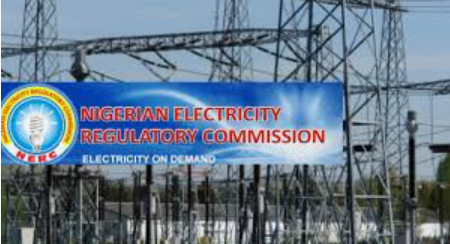In a shift that could alter Nigeria’s electricity transmission landscape, the Nigerian Electricity Regulatory Commission (NERC) has proposed that electricity Distribution Companies (Discos) should assume a greater financial role in repairing and maintaining the country’s transmission infrastructure. The NERC, responding to ongoing transmission issues that contribute to frequent power outages and inefficiency, suggests that allowing Discos to handle these expenses could improve the reliability and consistency of electricity supply across the country.
Challenges in the Current Power Transmission Framework
Nigeria’s power sector operates under a segmented framework, where the Transmission Company of Nigeria (TCN) is responsible for transmitting electricity from generation companies to distribution companies, who then supply it to end-users. However, transmission failures and infrastructure degradation have contributed significantly to power supply instability. The financial burden for repairs and upgrades primarily lies with the government and the TCN, but tight budgets and insufficient maintenance have led to a backlog of repair needs.
This proposed shift to allow Discos to invest directly in transmission repairs aims to address the long-standing gap in funding and maintenance that has limited TCN’s ability to handle the load and ensure steady transmission. NERC officials say that a partnership involving the Discos’ investment could help overcome these challenges by pooling resources, especially in regions most affected by repeated transmission failures.

Financial Implications and Stakeholder Concerns
For Discos, shouldering the transmission repair costs represents a significant shift in financial responsibility. Industry experts estimate that the cost of maintenance and repair across Nigeria’s power grid could run into billions of naira each year, given the scale of infrastructure that requires upgrading or replacing.
The NERC proposal has received mixed reactions from industry stakeholders, including the Association of Nigerian Electricity Distributors (ANED), which represents the Discos. ANED has expressed concerns over the financial strain that added maintenance responsibilities could place on Discos, noting that many of these companies already struggle with revenue shortfalls, low tariffs, and high levels of unpaid bills from end-users.
Additionally, ANED representatives argue that any new investment burden on Discos should be matched by regulatory support, such as adjusted tariffs or subsidies, to offset potential losses. Without adequate financial backing, they warn, the proposal could strain Discos’ resources and potentially lead to higher electricity prices for consumers.
### NERC’s Vision: Improved Service and Efficiency
NERC has remained optimistic, suggesting that involving Discos in repair and maintenance investments could encourage them to adopt preventive maintenance practices, ultimately leading to a more robust and reliable electricity grid. NERC chairman, Sanusi Garba, stated that this approach aligns with international best practices, where power distribution entities often invest in infrastructure repairs and upgrades to maintain reliability and attract new customers. By giving Discos a stake in the transmission infrastructure, NERC hopes to see a reduction in power losses during transmission, as well as improved overall service delivery.
“This proposal is not just about cost-shifting; it’s about empowering Discos to take active roles in the grid’s performance,” Garba remarked. “We are confident that, with the right oversight and incentives, this model could benefit both the Discos and electricity consumers by reducing downtime and creating a more reliable energy supply.”
### Potential Benefits for the Power Sector
If Discos agree to take on these transmission costs, the move could signal a turning point for Nigeria’s power sector, which has long struggled with systemic issues ranging from generation shortfalls to infrastructure decay. Possible benefits include:
– **Improved Reliability**: With Discos directly investing in transmission infrastructure, maintenance could become more frequent and thorough, leading to fewer breakdowns and outages.
– **Reduced Transmission Losses**: Aging infrastructure and limited repairs contribute to electricity loss during transmission, driving up costs for both Discos and consumers. With regular maintenance, these losses could decrease, potentially lowering operational costs in the long term.
– **Enhanced Customer Satisfaction**: Better maintenance and improved reliability are likely to enhance consumer satisfaction, which has remained low in Nigeria due to erratic power supply.
– **Increased Investment Attraction**: As reliability increases, the sector may attract more investment, both from local and international sources, particularly as investors gain confidence in the grid’s stability.
### Regulatory Support and Next Steps
In recognition of the concerns raised by Discos, NERC has indicated it may consider providing regulatory support mechanisms to ease the financial burden. Options under consideration include tariff adjustments, subsidies, or other incentives to encourage Discos to participate without risking financial instability. Garba confirmed that NERC will continue to engage with stakeholders to address these issues, stating, “We’re committed to ensuring that all stakeholders’ interests are protected in any new policy direction we take.”
To make this proposal a reality, NERC will need to develop a detailed framework, which includes establishing clear guidelines for cost-sharing, accountability, and the level of regulatory support. The commission will also conduct impact assessments and seek feedback from Discos and other stakeholders to refine the plan and address potential challenges.
### Outlook for the Power Sector
Though still in the discussion phase, the proposed shift could mark a transformative moment for Nigeria’s electricity sector. The success of this approach, however, will depend heavily on NERC’s ability to balance the financial pressures on Discos with the sector’s urgent need for improved reliability and efficiency. For consumers, the changes could mean more consistent electricity delivery and reduced interruptions, which would support economic growth and enhance quality of life.
As NERC, TCN, and Discos negotiate the terms, industry experts will be watching closely to see how this shift could impact Nigeria’s energy landscape. If implemented effectively, this collaborative model could help address the country’s chronic power challenges and set a precedent for sustainable infrastructure management in Nigeria’s power sector.
Support InfoStride News' Credible Journalism: Only credible journalism can guarantee a fair, accountable and transparent society, including democracy and government. It involves a lot of efforts and money. We need your support. Click here to Donate
